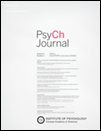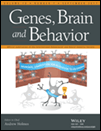A pharmacy journal has retracted a 2017 cancer paper after determining that the lead author forged her co-author’s signature.
Alain Li Wan Po, editor-in-chief of the Journal of Clinical Pharmacy and Therapeutics, told Retraction Watch that, after discovering the forgery, the journal lost confidence in “the integrity of the whole report,” and decided to retract it:
Our judgment was that if an author is willing to forge a signature, we cannot be sure of the integrity of the whole report and decided on the retraction.
According to Po, the paper’s lead author, Yan Wang, objected to the retraction because “she maintained that the data were accurate.” So the editors retracted the paper without her approval — but with the agreement of the author Jatinder Lamba, whose name was forged.
How did the journal discover the forged signature?
Continue reading Journal retracts paper after discovering lead author forged co-author’s signature



 The authors of a 2017 paper on emotional and behavioral gaps between boys and girls have retracted the article after discovering a coding error that completely undermined their conclusions.
The authors of a 2017 paper on emotional and behavioral gaps between boys and girls have retracted the article after discovering a coding error that completely undermined their conclusions. 
